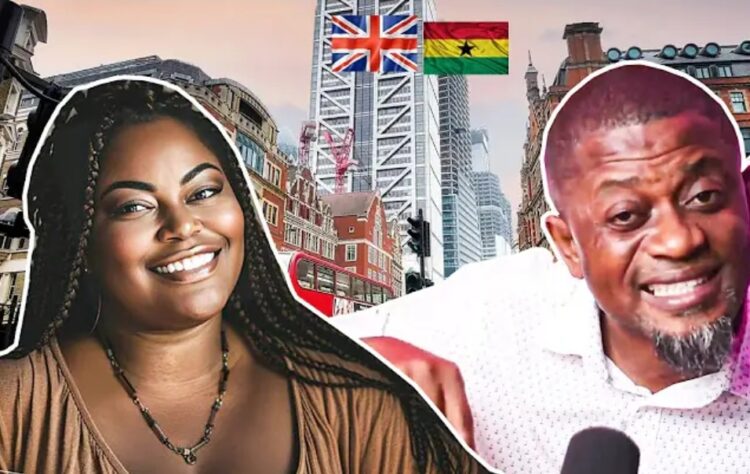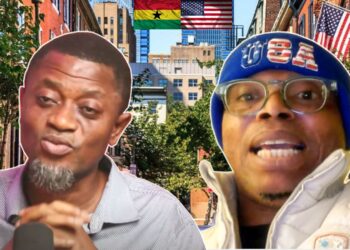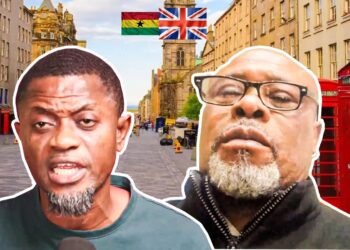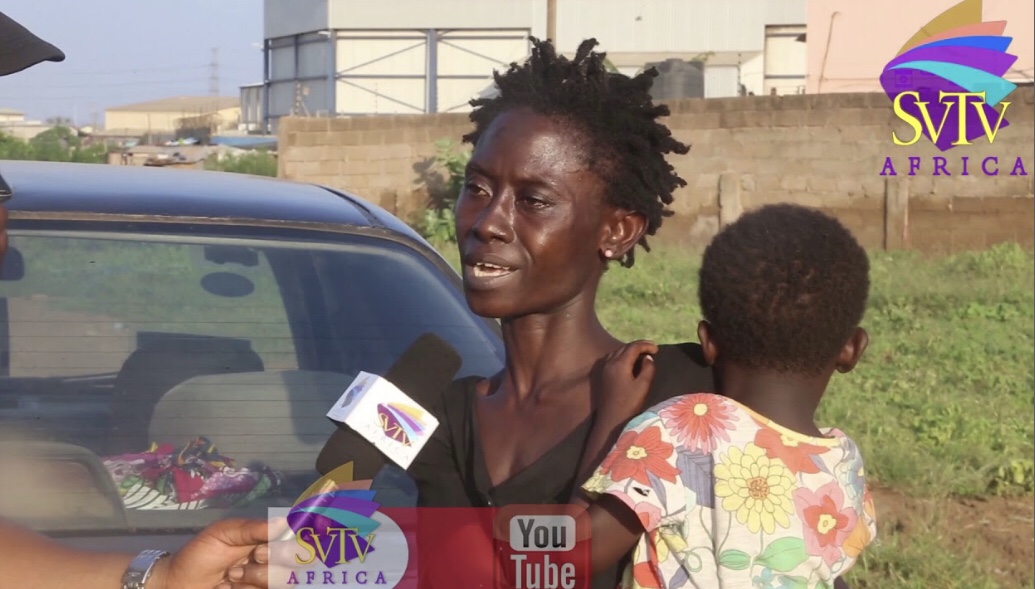Akosua, a Ghanaian living in the UK, appeared on SVTV Africa’s Matter Dey to share her long and difficult marriage experience.
She explained that she met her husband while they were both in university. He was in his third year, and she was a first-year student. He later travelled to the UK and returned to Ghana to propose to her. At the time, Akosua already had a boyfriend, but he warned her that university would expose her to new people. When her future husband approached her again, she wasn’t attracted to him because his appearance wasn’t her type. She lied that she had a boyfriend, but he insisted he had already investigated her and still wanted her.
He eventually returned to the UK for work and tried getting Akosua a visa, but she was denied. Despite the disappointment, he continued supporting her and even shopped for her. As she was about to complete university, she applied again for a UK visa and this time received a two-year multiple entry visa. When she travelled to the UK, she stayed with him even though he still wasn’t her “type.” She said he was intelligent, but she disliked how he drank and misbehaved when drunk. She fasted and prayed about the situation, eventually moving into a shared house and getting a work permit.
With time, they started sharing bills, but living with him remained a struggle. One day, after an argument, he made her pack her things and leave with her child. Someone intervened and tried to help them solve their issues. She travelled to Ghana for a while, and although he called her several times, their communication remained unhealthy. Her visa later expired; still, he only treated her well when he wanted to sleep with her. After sex, he acted like she didn’t exist.
They later had a second child, but she could tell he was not building a future with her. He travelled to Ghana to perform marriage rites, but his visa request was denied, making him stay in Ghana for one year and one month while she struggled in the UK alone with one toddler and another pregnancy. After she gave birth, he was granted only a three-month visa to return.
Later, after school, he told her he had acquired land in Accra and that his family members were building a house for him. Since they were legally married in Ghana and had two children, Akosua asked him to add her name to the property. He refused, claiming Ashantis love property and that the house was for his children—adding her name meant she could sack his children if he died. That was when she realised he had changed completely.
Akosua told her mother she no longer wanted marriage, but her mother disagreed. She and her husband have now been together for over 20 years and have four children. They live in the same house and even drive separate cars, but outsiders don’t see the struggles she faces. She says he forces intimacy, she has lost interest, and there is no communication in their marriage.
Akosua describes herself as “married but divorced” because they simply exist together. She has suggested divorce several times, but he insists that divorce does not exist in his vocabulary. Their children are also mentally affected by the situation, and Akosua says the relationship is not healthy for her anymore.
She now wants a way out—possibly moving to another country to escape the marriage. They are not legally married in the UK, and her husband had previously engaged in a fake marriage for documents. She also acquired two mortgages in the UK, and because she added his name for affordability purposes, both homes are in their names. She fears that living in a council house would give her the power to one day pack his belongings out—but because the mortgage properties carry both names, it appears they bought them together.

















